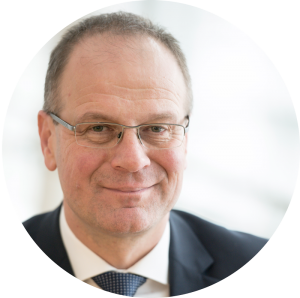
Tibor Navracsics is the Commissioner for Education, Culture, Youth and Sports for the Commission of President Juncker (2014 – 2019). Before this mandate, he started his career as a university professor and was subsequently appointed Head of the Prime Minister’s Office, member of the Hungarian Parliament, Deputy Prime Minister, Minister of Public Administration and Justice and Minister of Foreign Affairs and Trade. He is responsible for improving the quality and efficiency of the EU education systems, notably through the European Semester and ET 2020. In a context of high youth unemployment and skills mismatch, the modernisation of education in the EU is crucial to meet the challenges of employability and innovation in the digital age. He is also in charge of the education dimension of the Europe 2020 Strategy, the implementation of Erasmus +, the EU’s Youth, Sports and Culture policies.
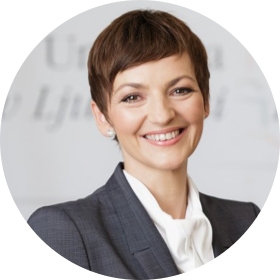
Prior to taking up the position of the Minister of Education, Science and Sport, dr. Maja Makovec Brenčič was full professor of international business and Vice-Rector for the area of knowledge transfer at the University of Ljubljana. Dr. Makovec Brenčič bibliography comprises over 400 scientific and professional titles. Her scientific research was focused on company internationalisation, relationship marketing, international marketing and connections between marketing, sales and human resources. In June 2013, she was appointed President of the European Marketing Academy (EMAC), the largest European academic organisation in the field of marketing. In 2011, she chaired the EMAC Annual Conference. She was President of the Društvo za marketing Slovenije (Marketing Society of Slovenia) from 2008 to 2014. She has considerable experience in the field of development and quality-assurance in higher education, internationalisation, and the integration of education and enterprise sector and wider social environment. In more than twenty years of working in education, dr. Makovec Brenčič held many positions, such as member or vice-chair of quality assurance committees (Faculty of Economics, University of Ljubljana), head of Education Centre of the Faculty of Economics, member of the Senate of the Faculty of Economics, and co-founder of Student Business Conference (linking the study and research achievements of students with the needs of companies and institutions).

Ryan is Chief Executive Officer at Creative Commons. He joined the organization in 2014 to define a new strategy and to establish long-term sustainability for CC. Today, CC is implementing its renewed strategy to build a vibrant, usable commons powered by collaboration and gratitude. Since 2014, CC nearly tripled the number of individual donors, and the commons grew to over 1.1 billion licensed works. In early 2016, CC announced a landmark $10M donation from the William and Flora Hewlett Foundation, supporting its ongoing work and renewed focus.
Prior to joining CC, Ryan was Chief Operating Officer of Mozilla. He also worked as Director of Corporate Communications for the City of Vancouver for the 2010 Winter Games, and was a Senior Advisor to Mayor David Miller in Toronto, where he led the Mayor’s budget policy and initiated Toronto’s Open Data project. Ryan is an experienced campaigner and advocate for social causes, and has advised political campaigns on the local and national levels. Ryan is an avid cyclist and an amateur barista. He lives in Toronto with his daughter.
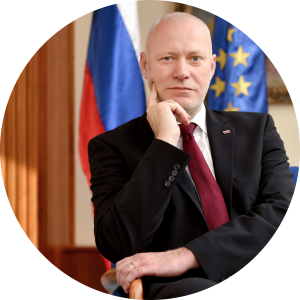
Dr. Milan Brglez was born in Celje in 1967. After completing primary and grammar school, he enrolled at the Faculty of Social Sciences, Political Sciences and Journalism where in 1992 he majored in political science/ international relations, completing his study with the faculty’s Prešeren Award. After graduation, he enrolled at the Faculty of Law at the University of Ljubljana and in 1996 defended his master’s thesis on the codification of contemporary diplomatic law for which he received the Zore Award. In 2006 he received the best PhD thesis award of the Faculty of Social Sciences for his doctoral dissertation on the theory and philosophy of international relations research.
In 1992 he started working as a teaching assistant at the Chair for International Relations and later on became the holder of several courses on international affairs and international law. From 2008 until his election to the National Assembly, he was also Head of the Chair for International Relations at the Faculty of Social Sciences.
Dr. Brglez is co-author of numerous scientific papers, book chapters and scientific c mono- graphs. He was member of the Strategic Council for Foreign Policy at the Ministry of Foreign Affairs and Vice-President of the Slovenian Red Cross.
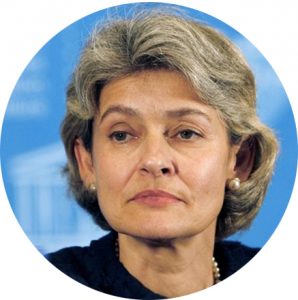
I am honored to welcome you to the 2nd World Congress on Open Educational Re- sources (OER) — I am deeply grateful to the Government of Slovenia for the leadership it has brought to this Congress and all through- out its preparations.
In 2015, the world agreed on a new, universal and comprehensive education goal in the 2030 Agenda for Sustainable Development — access, quality and equity are key priorities as we move forward.
Open Educational Resources offer vast potential on all accounts. “Open” is the operative word. These are openly licensed materials and resources that can be accessed freely to be used, reused and adapted to the needs of the user.
UNESCO has a special relationship with Open Educational Resources, having coined the term in 2002 and then helped to develop and disseminate it — including during the 1st World Congress in 2012 and its Paris OER Declaration, calling on all Governments to ensure educational materials paid by public funding should be open licensed. I feel encouraged to see progress across the world today.
Good practices can be found at every level, from primary to vocational and higher education, and in every region, from North America to Sub-Saharan Africa, where UNESCO’s OER-licensed primary school teacher training resources are freely available in 23 country versions.
All this builds on the commitment each of you is bringing to offer high quality, affordable and inclusive options for education policy makers, and, for this, I am deeply grateful.
Steep challenges remain, of course, and this Congress provides a powerful opportunity to explore together ways to tackle them and take forward the 2030 Agenda where it matters most, at the national level.
Thank you again — I wish you every success.
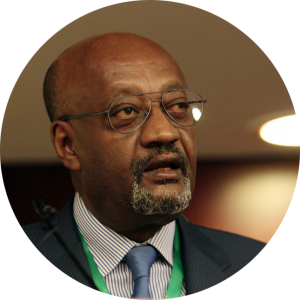
Mr Engida has spent the last 20 years leading and managing international organizations advancing the cause of poverty eradication, peace building and, sustainable development. He has extensively worked on rural and agricultural developments, water and climate challenges, education, sciences, technology and innovation, intercultural dialogue and cultural diversity, communication and information with emphasis on freedom of expression and the free flow information on and offline as well as good governance. Mr Engida brings to the international public service a broad range of leadership and management skills from his academic background and rich experiences in the private sector. Mr Engida is a specialist in change management, good governance and transformative leadership in diverse international setting. Mr Engida has travelled widely in public speaking and leadership engagements at international conferences on peace and sustainable development issues and conferred with political leaders, policy makers, international, regional and national non-governmental organizations, the private sector academia and civil society.
Mr Engida joined UNESCO as Deputy Assistant Director-General for Administration and Comptroller in June 2004. He has served as Deputy Director-General since July 2010, and from January 2014, has taken on the added responsibility of managing the Communication and Information Programme of UNESCO. He also serves on a number of not-for-profit international boards.
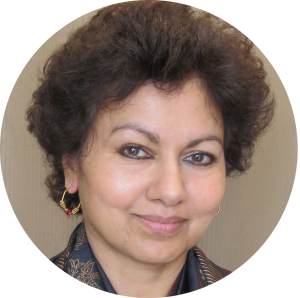
Professor Asha Singh Kanwar, one of the world’s leading advocates of learning for sustainable development, is the President and Chief Executive Officer of the Commonwealth of Learning (COL). Prior to joining COL, Professor Kanwar served brie y at UNESCO’s Regional Office for Education in Africa which she joined after a distinguished career at the Indira Gandhi National Open University, India. Professor Kanwar has over 35 years of experience in teaching, research and administration. She has written, edited a dozen books and published numerous papers and articles. Her speeches and presentations are available at www.col.org. A recipient of several awards and fellowships, Professor Kanwar received the International Council for Open and Distance Education (ICDE) Prize of Excellence and the Meritorious Service Award for outstanding contributions in open and distance education from the Asian Association of Open Universities. She has been conferred six honorary doctorates: from the Vardhman Mahaveer Open University, KK Handiqui State Open University, India; the Open University, UK; the Open University of Sri Lanka; University of Swaziland and Wawasan Open University, Malaysia.